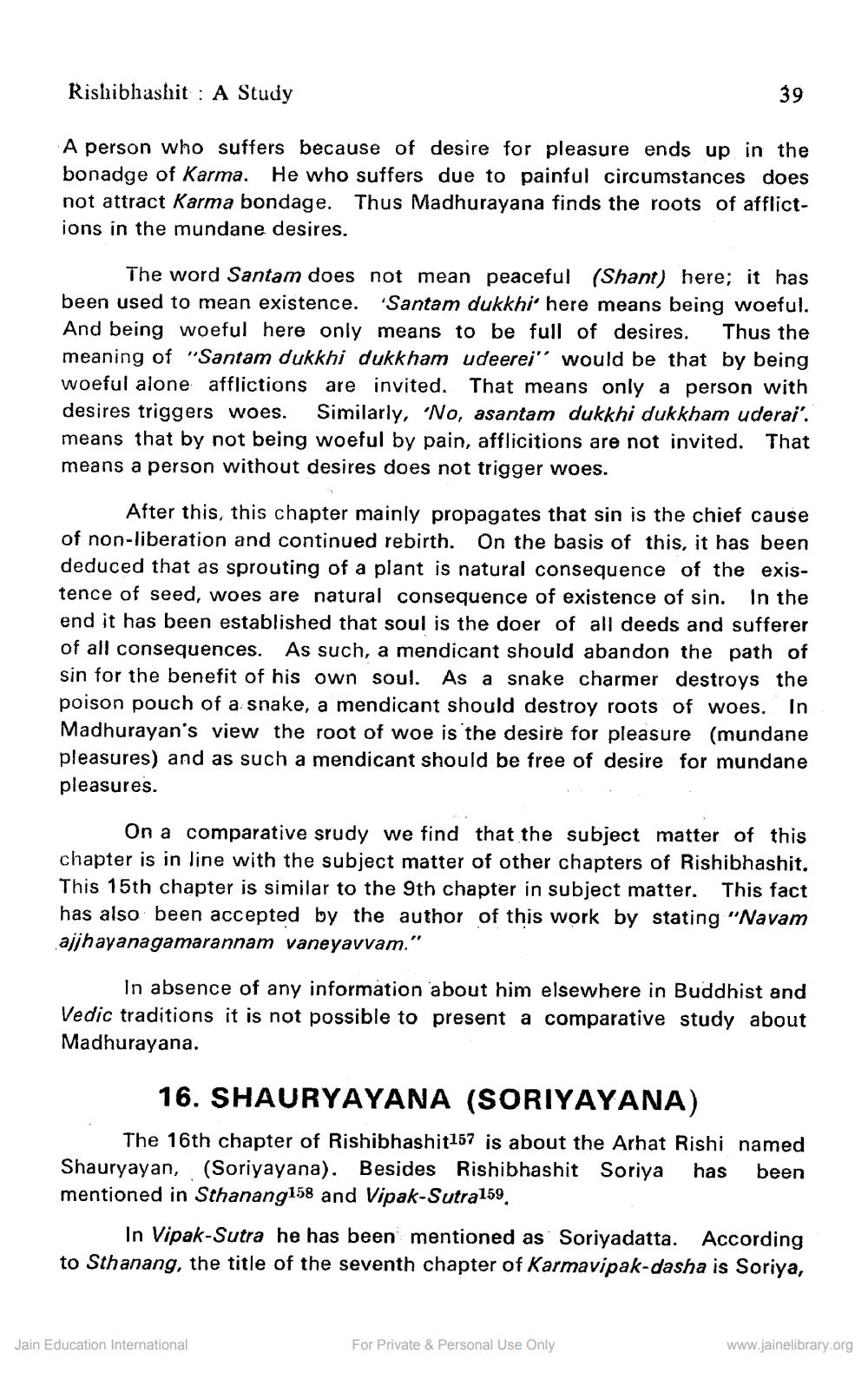________________
Rishibhashit : A Study
39
A person who suffers because of desire for pleasure ends up in the bonadge of Karma. He who suffers due to painful circumstances does not attract Karma bondage. Thus Madhurayana finds the roots of afflictions in the mundane desires.
The word Santam does not mean peaceful (Shant) here; it has been used to mean existence. "Santam dukkhi' here means being woeful. And being woeful here only means to be full of desires. Thus the meaning of "Santam dukkhi dukkham udeerei" would be that by being woeful alone afflictions are invited. That means only a person with desires triggers woes. Similarly, 'No, asantam dukkhi dukkham uderai'. means that by not being woeful by pain, afflicitions are not invited. That means a person without desires does not trigger woes.
After this, this chapter mainly propagates that sin is the chief cause of non-liberation and continued rebirth. On the basis of this, it has been deduced that as sprouting of a plant is natural consequence of the existence of seed, woes are natural consequence of existence of sin. In the end it has been established that soul is the doer of all deeds and sufferer of all consequences. As such, a mendicant should abandon the path of sin for the benefit of his own soul. As a snake charmer destroys the poison pouch of a snake, a mendicant should destroy roots of woes. In Madhurayan's view the root of woe is the desire for pleasure (mundane pleasures) and as such a mendicant should be free of desire for mundane pleasures.
On a comparative srudy we find that the subject matter of this chapter is in line with the subject matter of other chapters of Rishibhashit. This 15th chapter is similar to the 9th chapter in subject matter. This fact has also been accepted by the author of this work by stating "Navam ajjhayanagamarannam vaneyavvam."
In absence of any information about him elsewhere in Buddhist and Vedic traditions it is not possible to present a comparative study about Madhurayana.
16. SHAURYAYANA (SORIYAYANA)
The 16th chapter of Rishibhashit157 is about the Arhat Rishi named Shauryayan, (Soriyayana). Besides Rishibhashit Soriya has been mentioned in Sthanang158 and Vipak-Sutra159,
In Vipak-Sutra he has been mentioned as Soriyadatta. According to Sthanang, the title of the seventh chapter of Karmavipak-dasha is Soriya,
Jain Education International
For Private & Personal Use Only
www.jainelibrary.org




